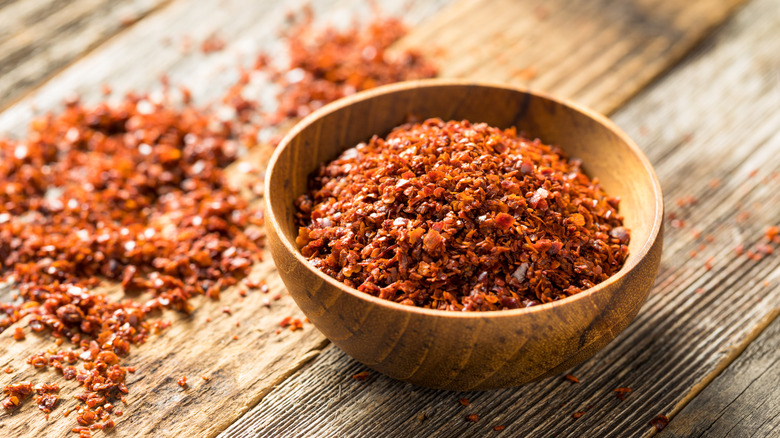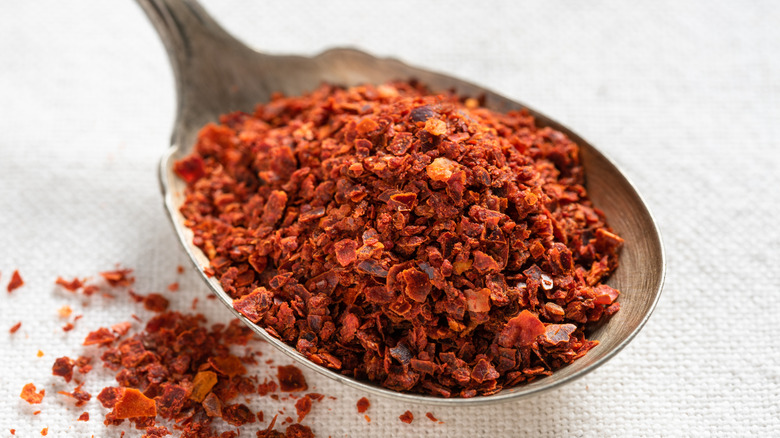How Does Aleppo Pepper Compare To Red Chile Flakes?
If you're someone who reaches for crushed red chile flakes during every meal, Aleppo pepper should be on your radar. Red chile flakes occupy a unique place in the spice world. Rather than being reserved for specific recipes like most spices, they are all-purpose flavor enhancers like salt or pepper. Aleppo pepper pairs with everything from pasta to stir-fry dishes to whenever you crave a little or big kick of heat. Most red chile flakes are not that flavorful: The spice delivers heat first with only a hint of chile. Sometimes you want to add a dash of heat, and that's it. But if you want something extra flavorful, you may want to stock up on Aleppo pepper.
Aleppo pepper is essentially a Middle-Eastern version of standard red chile flakes. While red chile flakes come from a mix of different dried chiles, The Spruce Eats states Aleppo pepper comes from one, the Halaby chile pepper, originally from Syria and named for the city of Aleppo. The spice plays a similar role in Middle-Eastern and Mediterranean cooking as red chile flakes do in America. But its expanding popularity worldwide has made cooks appreciate its unique flavor and characteristics compared to standard red chile. But what sets Aleppo pepper apart?
Aleppo pepper has more flavor and less heat than red chile flakes
Aleppo pepper has gained ground in kitchens because it brings more flavor to dishes. According to Bon Appétit, Aleppo pepper has an earthy quality combined with a fruity brightness. The pepper has savory characteristics and great depth, with notes of tomatoes, raisins, and cumin. Unlike red chile flakes, Aleppo pepper flakes are softer and more oily than red chile flakes. After grinding up the Halaby pepper, a light coating of salt and oil preserves it — contributing to its flavor while helping to preserve the flakes' pungency (via Serious Eats).
The other big difference between red chile flakes and Aleppo pepper is the heat level: Aleppo pepper is about half as hot as red chile. While that may turn you off as a heat-seeker, it means you have a lot more control over the level of spice you're introducing. A little bit of Aleppo pepper will wake up your dish without making it punishingly spicy, like too much red chile can do. While Aleppo pepper works with almost any food, the best way to try it may be as a dry rub on chicken and kebabs — a common use for the spice in its home region. Once you get a taste, your salt and pepper will have a new all-purpose best friend.

